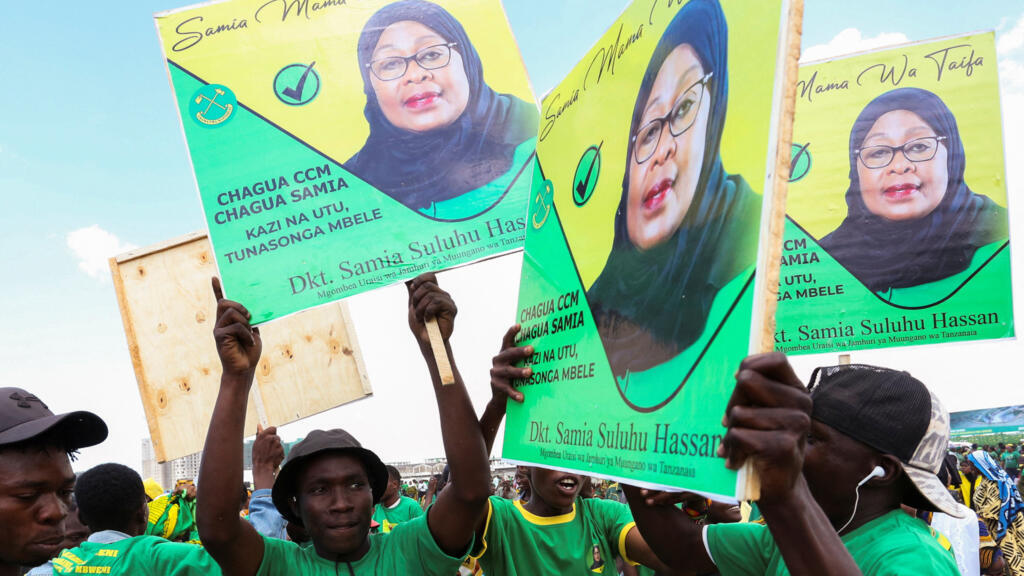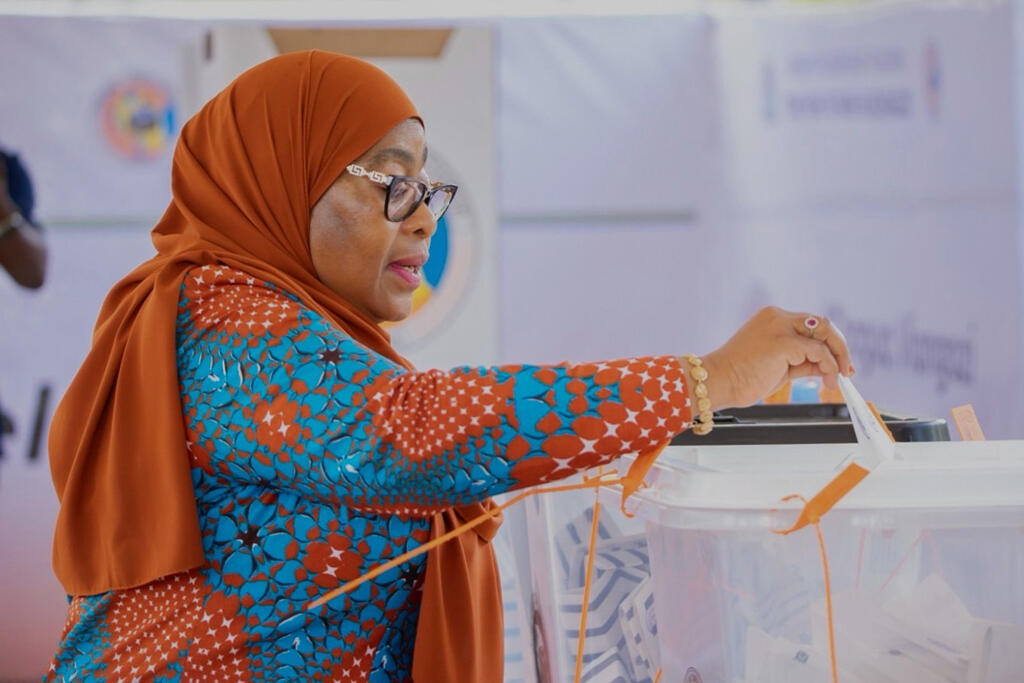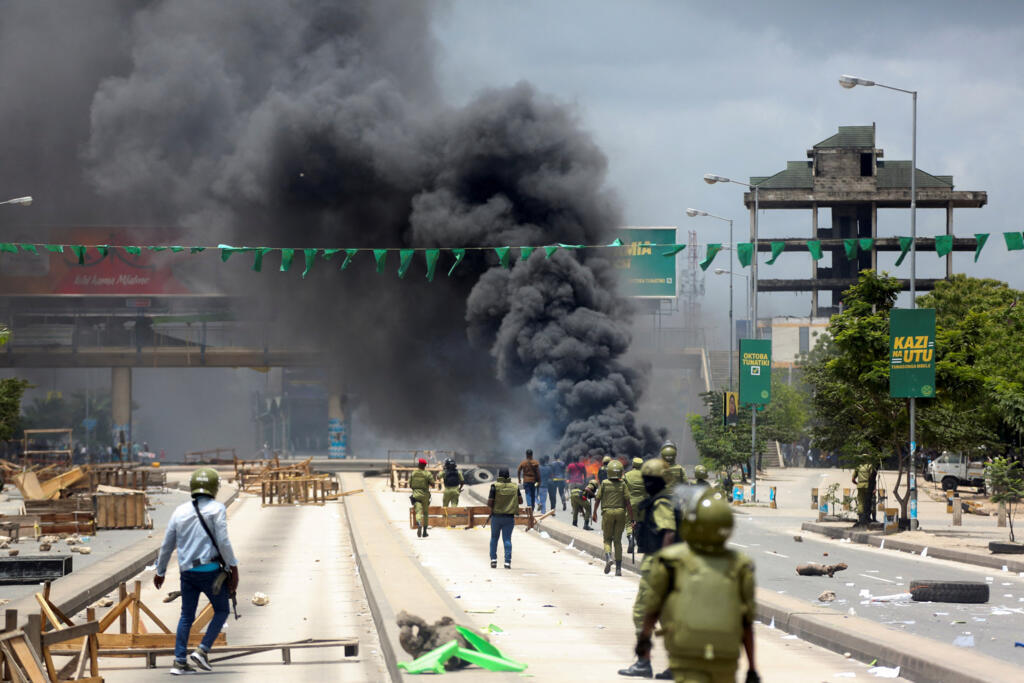
Tanzania's President Samia Suluhu Hassan was inaugurated on Monday, even as the opposition labelled it a "sham". This comes as African observers said Tanzanian citizens had not been able to "express their democratic will", citing intimidation, censorship, and lack of an opposition.
Incumbent leader Samia Suluhu Hassan played down days of bloody protests as she was inaugurated on Monday, at a ceremony in State House, without the public.
Hundreds of people are reported to have died in protests after the east African nation's presidential and parliamentary polls on 29 October, with key candidates either jailed or barred from participating.
The main opposition party, Chadema, which was barred from running, has rejected the results, which saw Hassan win with 98 percent. It has called for fresh elections, saying last Wednesday's vote was a "sham".
In her speech, Hassan called for "unity and solidarity" but also alleged that some of the young protesters came from "outside Tanzania".
"Our defence and security agencies continue to investigate and examine in detail what happened," she said, promising a return to normalcy as she addressed officials and foreign dignitaries in the capital Dodoma.

Internet blackout continues
A total internet blackout has been in place since protests broke out on election day, meaning only a trickle of verifiable information has been getting out of the east African country.
A diplomatic source said there were credible reports of hundreds – perhaps even thousands – of deaths registered at hospitals and health clinics around Tanzania.
Chadema told French news agency AFP it had recorded "no less than 800" deaths by Saturday, but none of the figures could be independently verified.
UN 'alarmed' by reports of deadly election violence in Tanzania
The government has not commented on any deaths, except to reject accusations that "excessive force" was used.
Schools and colleges remained closed on Monday, with public transport halted and reports of some church services not taking place on Sunday.
The diplomatic source said there were "concerning reports" that police were using the internet blackout to buy time as they "hunt down opposition members and protesters who might have videos" of atrocities committed last week.

Meanwhile African observers on Monday filed their first report on the election.
In a statement, Richard Msowoya, the head of the Southern African Development Community Electoral Observation Mission (SEOM), said it was their "tentative conclusion that, in most areas, voters could not express their democratic will".
Tanzanian opposition leader to represent himself in court over treason charges
The 66 observers came from 10 countries – Eswatini, Lesotho, Botswana, Namibia, Malawi, Mozambique, Seychelles, South Africa, Zambia, and Zimbabwe – and were deployed across 27 of 31 Tanzanian regions.
The report said stakeholders warned the election-day quiet "belies covert acts of general intimidation of the population and opposition".
"They also described a tense and intimidating political atmosphere," noting a rise in political abductions.
Heavy censorship
Tanzania's Tanganyika Law Society said before the polls it had confirmed 83 abductions since Hassan came to power in 2021, with another 20 reported in recent weeks.
SEOM said turnout was "very low", noting a visible security and police presence throughout the day.
"In some polling stations, they [police officers] were more than the number of voters," they said.
Tanzania's electoral commission claimed turnout was 87 percent.
Tanzania's opposition rallies against 'cosmetic' electoral reforms
The report said in some polling stations, "there were multiple orderly stacked ballots in the ballot box during voting, which created a perception of ballot stuffing".
It added there were impressions some people "cast more than one vote at a time with the intention to cheat the election system".
It noted violence in Mbeya, Dodoma, Arusha, and in the largest city of Dar es Salaam.
SEOM also noted concern that there was "increasing covert and overt limitations on the right to freedom of expression", and that there was "heavy censorship of online information platforms".
(with AFP)







